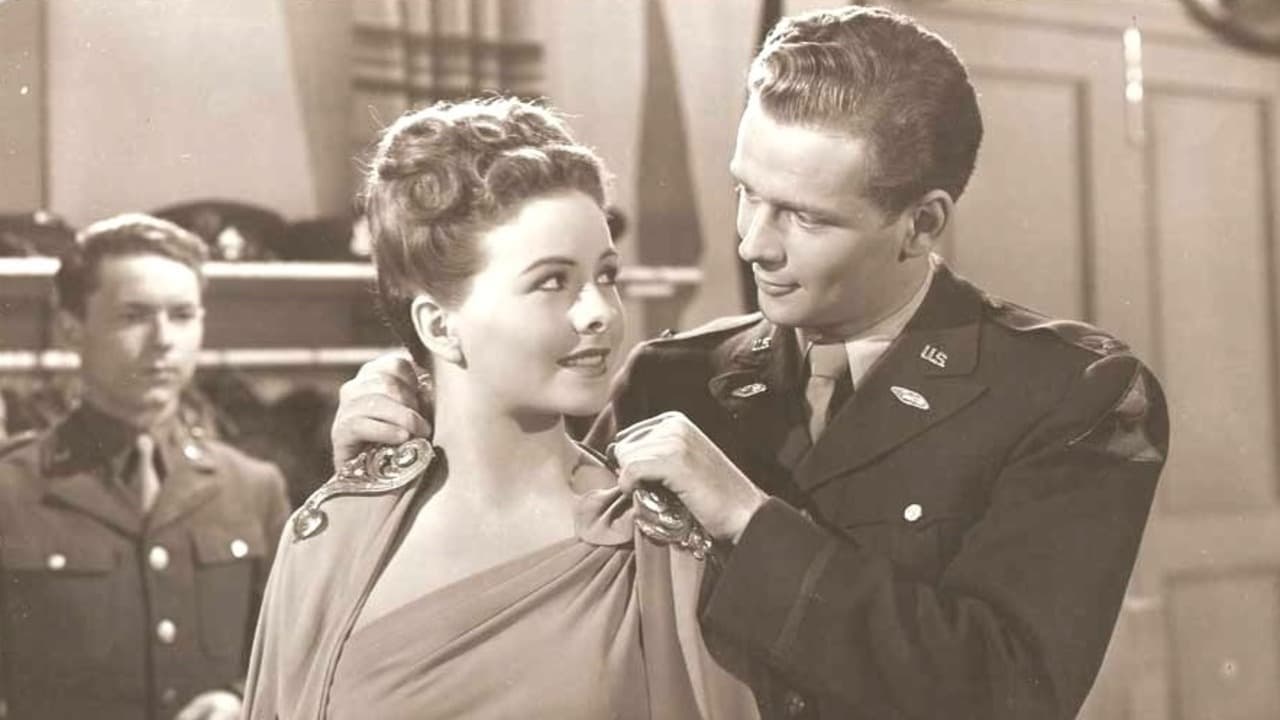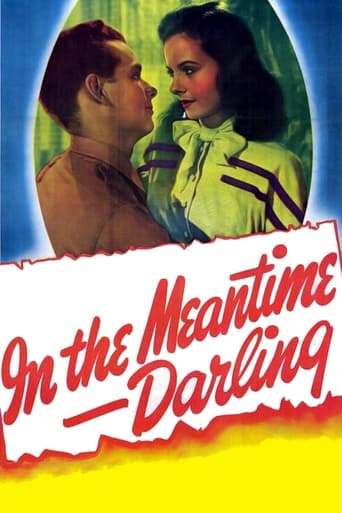Perry Kate
Very very predictable, including the post credit scene !!!
Lucybespro
It is a performances centric movie
Hulkeasexo
it is the rare 'crazy' movie that actually has something to say.
Keeley Coleman
The thing I enjoyed most about the film is the fact that it doesn't shy away from being a super-sized-cliche;
MartinHafer
The purpose of this film was obvious--the filmmakers wanted to press home the notion that there must be self-sacrifice for the war effort. The problem is that this propaganda message seems a bit too obvious--especially since they made the main character, Maggie, a bit too unrealistic.When the film begins, Maggie (Jeanne Crain) is marrying Lt. Ferguson. However, it's obvious that they're a bit mismatched. He is a normal everyday guy, she's a spoiled rich brat who is used to having everyone cater to her. However, she's going to be living in a boarding house with a lot of other military wives...and it's going to be tough going because of her ridiculous expectations.The Maggie character was just poorly written. She either came off as an entitled jerk or a self-less woman who, miraculously, realizes the importance of the war. It's just too black & white in its portrayal of the lady. Overall, a decent enough idea for a wartime film but one that just doesn't seem to work.
Leonard Kniffel
Some reviewers call "In the Meantime, Darling" a comedy. It is not. Nor is it a so-called "woman's picture." Sure it's about military wives during World War II, but more than that, it is about class in America. If you read between the lines, you can see how cleverly director Otto Preminger set up the scenes, with spoiled rich girl (played beautifully by Jeanne Crain) barely able to cope with the sacrifices that were necessary to fight and win the war. She represents a large segment of America that could buy its way out of hardship, and her parents represent the Americans of the period who were little moved by the war, who in fact profited nicely from it. The lower class is represented by Red and Shirley Pianatowski, the undereducated Polish American couple with hearts of gold. And most significant is the African American bellhop who also has a son in the war (although we never see him), played with great dignity by Clarence Muse. It is even said that the gargantuan Eugene Palette, who played the rich father, fought Otto Preminger when instructed that he was to do a scene with a black man. This film is not particularly funny, nor does it give much sense of how horrible World War II was. It does, however, give some insight into how Americans won a war against racism and ethnic purity while still living with the after effects of the slavery and genocide upon which the country was built.
froberts73
First of all, 70 minutes of Miss C is worth far more than 7 hours of watching most of today's over-made-up, plaster-faced screen personalities. JC (nice initials) Lamarr, Lamour, etc. were natural beauties.Now for the pic. Produced and directed by Preminger - certainly not his usual thing. The movie itself was pleasant, the characters interesting and fun.It is a woman's movie, but it gives insight into the lives of GIs and wives during WW2. I recommend it as a pleasant diversion, and an opportunity to watch its beautiful star for a good length of time.
dougdoepke
Slender little wartime comedy whose best feature is a winsome young Jeanne Crain and a lively Gale Robbins as new brides. The boys are training in the desert before being shipped overseas. In the meantime, the married officers are boarding at what looks like the only house for miles around. Many of the junior officers are newly married and much of the comedy comes from their efforts to cope. For the girls, it's a period of adjustment sharing facilities and household duties with others. For Crain, with her privileged background, adjustment proves especially difficult.The premise is promising, but the screenplay remains underdeveloped and never really gels as a comedy. That's not surprising since the running time is 70 minutes for a production probably chunked out in 10 days and scheduled for bottom-of-the-bill showing to the eager droves of wartime audiences. Also, cult director Otto Preminger seems an odd choice for light comedy, his strength being slow, heavy psychological dramas like Laura (1943). The results here suggest he was uninterested in the material, to say the least. Nonetheless, for those interested in how newly-weds adjusted to wartime demands, the movie offers a generally entertaining if lightweight glimpse.

